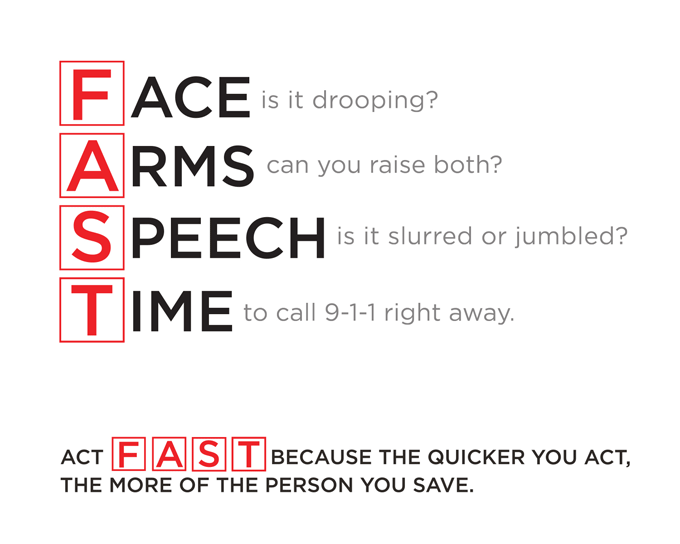Only a third of Canadians can describe what a stroke is while about 20 per cent know its major risk factors, according to a Heart and Stroke Foundation report.

The new report is warning that less than 40 per cent of stroke patients are heading to hospital within a four-hour time frame – the faster someone suffering from a stroke seeks medical help, the better their chances of survival and recovery.
“Canadians, paramedics, emergency department staff and other medical professionals all play a vital role in early stroke management,” Dr. Michael Hill, director of the foundation’s Calgary Stroke Program, said.
“Rapid treatment is life- and disability-saving. Speed requires teamwork. How quickly and how well everyone works together within the stroke system of care, can dramatically influence stroke patients’ outcomes,” he said.
READ MORE: Pay attention to stroke warning signs, Heart and Stroke Foundation says
A stroke is a sudden loss of brain function – about 62,000 strokes occur in Canada each year. More than 80 per cent of Canadians who have a stroke and make it to hospital survive, but with varying degrees of recovery.
Twenty-per cent of Canadians polled in the HSF study knew that high blood pressure was a risk factor for stroke. It’s the number one risk factor next to smoking, poor diet, lack of exercise and excess weight – other key determinants that most Canadians couldn’t identify.
Turns out, Canadians also overlooked the importance of calling 9-1-1 after experiencing a stroke. Paramedics are the frontline health care workers that’ll “recognize and mobilize” after seeing a patient. They help with lowering blood pressure, checking heart rate and even establish stroke onset time.
If patients are transferred to hospital in an ambulance, they also receive clot-busting medication.
READ MORE: Some Canadians misunderstanding stroke recovery process, report says
Still, only one-third of Canadians polled said it was important to call an ambulance because stroke is an urgent condition.
Last December, the foundation launched a new campaign that raises awareness of the signs of stroke.
It’s teaching Canadians about FAST – a simple way to recognize signs of stroke and take quick action – the faster you get to medical help, the more of a person you save.

READ MORE: Canadians living longer, but managing heart health needs improvement
FAST is translated into several other languages and is used globally.
“Our objective is to ensure that all Canadians, no matter where they live or how old they are, know and remember the signs of stroke with the FAST approach,” said Ian Joiner, director of Stroke at the Heart and Stroke Foundation.
READ MORE: Canadian study could lead to better detection, treatment of stroke risk worldwide
“The faster you can get to the right hospital when experiencing stroke, the better your chances of survival and recovery with little or no disability. There is a saying that ‘time is brain’ or, put another way, that ‘time lost is brain lost,’” he said.
Brain cells die at a rate of two million per minute after stroke, he warned. Restoring normal blood flow sooner rather than later makes a significant difference.
More than 80 per cent of Canadians who have a stroke and make it to hospital survive, but with varying degrees of recovery.
READ MORE: 5 lifestyle changes to improve your heart’s health
Read the full report here.
carmen.chai@globalnews.ca
Follow @Carmen_Chai




Comments